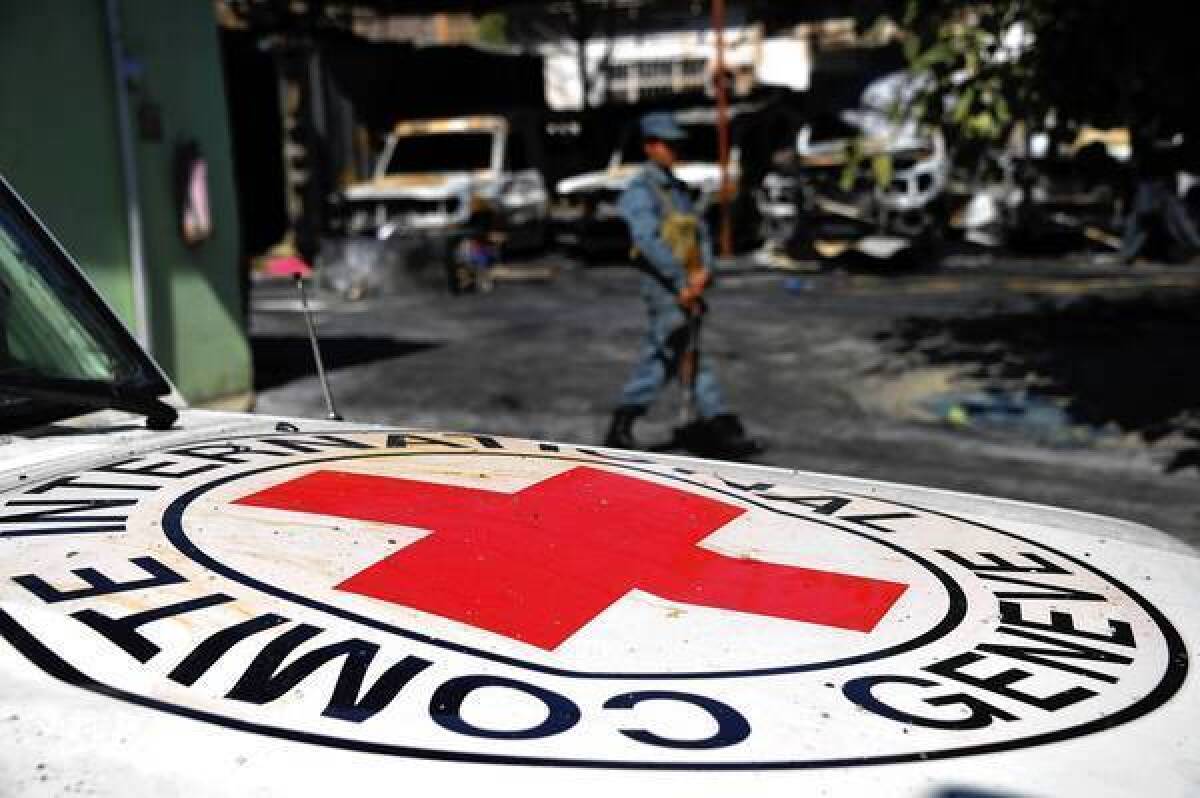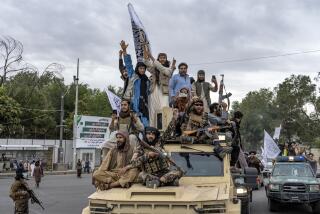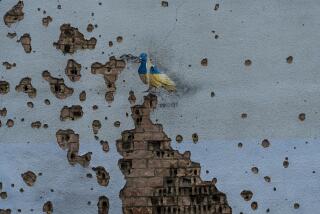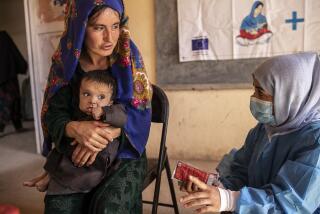Red Cross temporarily halts operations in Afghanistan

KABUL, Afghanistan — The International Committee of the Red Cross said Friday that it has temporarily suspended operations in Afghanistan after an attack this week in the eastern city of Jalalabad in which a security guard was killed and a staff member wounded.
The closure comes as aid agencies across the war-torn country grow increasingly concerned about their ability to carry out humanitarian work after the withdrawal of foreign combat troops by the end of 2014.
“Because of the incident in Jalalabad we suspended all our activities in Jalalabad and our offices are closed until further notice,” Robin Waudo, a spokesman for the Red Cross in Afghanistan, said in a telephone interview. “In the past two days, we are not moving or carrying out activities in any part of the country.”
Adding an element of mystery to the case, Taliban spokesman Qari Yousef Ahmadi said in a statement that the group was not involved in Wednesday’s strike. “We are not supporting this kind of attack,” the group said in a rare public denial.
The Taliban, which at times has claimed responsibility for attacks it didn’t organize and exaggerated those it was involved in, said it does not support strikes on “independent” aid agencies.
The denial could mean that the Red Cross was mistakenly attacked, or that the Taliban wanted to distance itself from an attack its members committed, analysts said.
Waudo said the Red Cross would resume limited operations Saturday in locations other than Jalalabad, the capital of eastern Nangarhar province, depending on the results of a security assessment. Among the questions the group is trying to answer, he said: Who was responsible for Wednesday’s attack, what was their motive and how could it affect future operations.
“We can’t point fingers and begin to speculate,” Waudo said.
In the attack, two assailants wearing suicide vests shot the group’s security guard and entered the compound, then used heavy weapons and grenades in a two-hour fight with Afghan security forces before blowing themselves up. Seven foreign staff members were rescued.
The Jalalabad attack came five days after a strike in Kabul, the Afghan capital, on the headquarters of the International Organization for Migration, a United Nations agency. The Taliban claimed responsibility for that attack, an eight-hour firefight in the heart of the capital.
The Afghanistan NGO Safety Office, which monitors security for aid groups, reported that 74 humanitarian organizations were victimized in 164 incidents in 2012, 56% by armed opposition groups, 32% by criminals and 12% by Afghan or international security forces.
Any attack is traumatic, analysts said, but the Red Cross may be doubly rattled partly because it is well-regarded in Afghanistan, has rarely been targeted and often works with the Taliban and other insurgent groups as part of its effort to remain as neutral as possible in any global conflict.
The Red Cross reportedly has worked with the Taliban to carry out polio vaccine campaigns in insurgent-controlled areas. And in 2010, the Red Cross announced that it was providing first aid training to the Taliban, consistent with a mandate to provide equal treatment to both armies and armed opposition groups in conflicts.
In June 2012, the Taliban praised the Red Cross as a group that works for ordinary Afghans, not the Afghan government or international forces, adding in a statement that the group had offered valuable help during the fight against the Soviets in the late 1980s.
Jawed Kohistani, a Kabul-based military analyst, said the two attacks on humanitarian groups within a week probably will have an effect on most aid groups working in Afghanistan.
“Given the growing threats we face this year and next, I think most aid organizations will close their offices or reduce staff,” he said. “Their decreased activities in Afghanistan will hurt us all.”
The attack Wednesday on the Red Cross facility was reportedly the first aimed at Red Cross facilities in Afghanistan since the organization started operating in the country in 1987. It has a $90-million operation and employs more than 1,500 staff members in Afghanistan, its largest worldwide, undertaking a wide array of projects that include water sanitation, amputee rehabilitation, protecting detainees and improving the outlook for farmers.
In a video posted on YouTube, Jacques De Maio, the Red Cross’ head of operations for South Asia, said the Jalalabad attack was well planned and executed.
“It rules out an isolated incident by some individual,” he said. “The quality of the attack compels us precisely to redefine the level of danger there is for humanitarian players and for us to operate in the area.”
Special correspondent Baktash reported from Kabul and Times staff writer Magnier from New Delhi.
More to Read
Sign up for Essential California
The most important California stories and recommendations in your inbox every morning.
You may occasionally receive promotional content from the Los Angeles Times.










